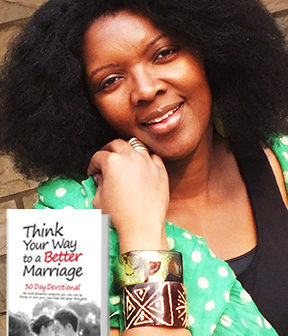Although, I have had my eye on the Mothers of Preschoolers (MOPS) bi-weekly meetings for at least a year, it wasn’t until I saw the topic of the meeting: “Think Your Way to a Better Marriage”, hosted by life coach, Carnisa Berry, that I finally made up my mind to register and attend.
Carnisa Berry is a charismatic speaker who doesn’t mind sharing humorous anecdotes from her nineteen years of marriage. She shares laughable moments from her honeymoon years—how she criticized the way her husband folded shorts because she strongly believed she knew better; or how she expected him to fill up her tank because that’s what husbands do. Berry describes the relatable challenges in her marriage and shares tried-and-tested tips that worked for her and her husband in layman terms without the professional jargon we often get with consultants and experts.
Even if you aren’t familiar with the Bible, you can still appreciate the message in the words Berry has chosen, such as the following:
What causes fights and quarrels among you? Don’t they come from your desires that battle within you? 2 You desire but do not have, so you kill. You covet but you cannot get what you want, so you quarrel and fight. You do not have because you do not ask God. 3 When you ask, you do not receive, because you ask with wrong motives, that you may spend what you get on your pleasures. (NIV: James 4:1-3)
Berry’s central message is not necessarily in prayer, but in turning our attention within and identifying the cracks in our being for what they are: the root and cause of the troubles that strain our relationships. Berry reminds us that positivity alone will not deliver us a better marriage, nor will our race for happiness–both are merely results of a nobler goal: wholeness. In other words, to think our way to a better marriage begins with thinking our way to a better, more wholesome version of ourselves.
Easier said than done, right? Berry wants us to understand what the six basic human needs are, and then identify which are most important to us: (1) significance, (2) safety & security, (3) love & connections, (4) variety, (5) growth, and (6) contribution. She describes the first three as most common, stating that if your partner feels insignificant, he will start a fight for the attention; if your partner feels insecure, he will do everything wrong to see how long before you’ve had enough of him; and if your partner feels unloved or disconnected, he will tease you and irritate you for a chance to reconnect.
Since most of us have different needs and priorities, we often neglect to recognize the real cause of another’s disgruntlement. Understanding others is difficult, and we cannot expect our partners to read our minds (or our hearts), so the only remedy is to fully understand ourselves so that we may clearly communicate to our partners what we want and need from them. As stated in the quote, you cannot have what you do not ask for. If you do ask, and yet you don’t receive, it could be because your reasons were wrong, or perhaps your tone was off. To improve in both identifying problems and communicating them to our partners, Berry recommends reading Gary Chapman’s “The Five Love Languages“, or at the very least, taking the free love language test to determine what you and your partner’s love languages are.
In addition to knowing and improving ourselves, Berry cautions to recognize that expectations ruin marriages. She reminds us that some expectations are so deeply ingrained from childhood, or from media and culture, that we don’t realize they’re unnecessary. As such, we should discuss expectations prior to marrying and during marriage if new ones should be discovered. We should question where our expectation comes from, and whether we need to hold on to them, or if it’s something we had internalized and merely assumed as natural. Are our expectations even achievable? Are we being reasonable and realistic? While Berry reminds us that expectations are demands that should be reworded into expressed needs to create opportunities for satisfaction, I believe it is also important to apply such introspection to the expectations we might have of ourselves in the marriage roles we’ve adopted (e.g. what do we expect in a wife?)
A close friend of High-Expectations is Comparison. Berry tells us straight up: there is no such thing as a perfect marriage. There are no perfect husbands or wives–anyone we perceive as perfect is faking it or hiding something, so we ought to stop comparing what we have to what others have. Instead, let’s compare our relationship to a previous check point, and build a vision of a better marriage together.
Berry advises to have an annual review to discuss what we would like our upcoming year to look like in order to ensure we are headed in the same direction. As marriage takes hard work, we must be intentional about nourishing it by scheduling weekly date nights and conversations for a chance to bond, voice grievances, and reconnect with each other. After all, a strong healthy marriage sets the atmosphere for our family lives and provides our children with a good sense of security.
On April 30, Carnisa Berry will be joint-hosting a wellness retreat, A Journey to Wholeness, with yoga instructor, Hannah Northcott, in Shunyi. You can purchase her book, Think Your Way to a Better Marriage on Amazon.
MOPS is a faith-based community group for moms of preschool aged children, hosting international (English language) meetings twice a month, a bilingual English-Chinese group meeting once a month, and Chinese group meetings once a month. The meetings often have speakers give talks/presentations or host workshops, followed by a discussion session in small groups, and often end with arts and crafts. MOPS events have childcare available with RSVP and a small fee (RMB 20).
Photo: Courtesy of Carnisa Berry




